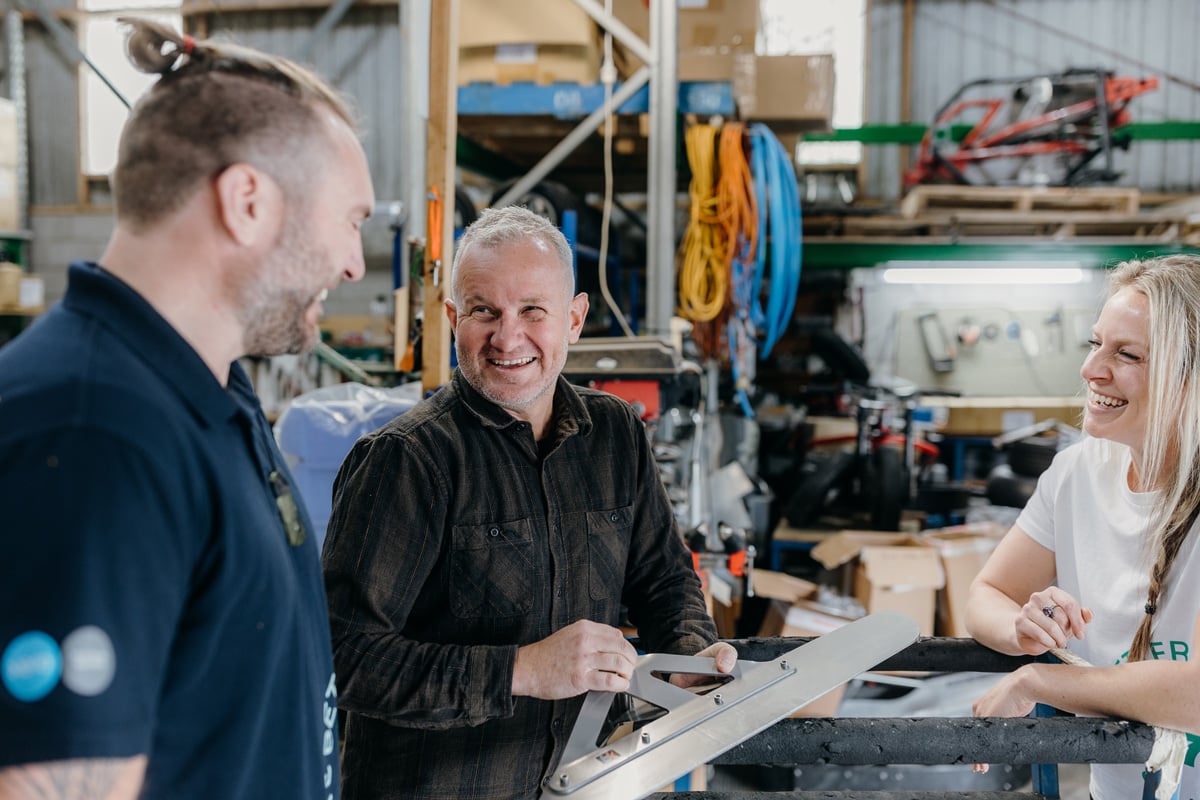Your big, bold business idea. So bright and shiny, it’s been keeping you up nights. You’ve shared your excitement with (trustworthy) friends and family. And you can’t wait to bring it to life.
But before the rubber hits the road, it’s a good idea to let your pencil hit the paper.
Doing a business feasibility study first will help you figure out whether your new business idea is worth your time, energy and money – all very precious commodities. It will help you calculate, analyse and project what will be involved and the likelihood of success.
It might sound a bit dry and dusty, compared with the adventure of a new venture. But a business feasibility test doesn’t have to be boring or complicated. Think of it as a really valuable step on your own unique path to success. We guarantee that it will help you spot things you may have overlooked, including both risks and opportunities. And you’ll know whether your idea can make enough money to cover your costs and turn a profit – before you spend a cent.
If you have a great idea for a new business but don’t know where to start, read on, grab a pen (and a spreadsheet or two) and ask yourself these nine important questions.
You might also like to check out this post where we bust common myths about entrepreneurship and what it takes to create a successful startup.
1. Is the name you want available?
A great brand begins with a strong, unique name. Check your business name doesn’t conflict with that of another business, by looking up the free online registers provided by the Intellectual Property Office of New Zealand and the NZ Companies Register. And you’ll also want to consider things like a website URL and social media handles. Be prepared to try a few options before you find a name that’s ownable.
2. How will you run and grow the business?
Developing a business plan means detailing the strategies and tactics you will implement to build and grow the business. Your business plan should be an evolving document that grows as your business does, reviewed each year with your business adviser or accountant.
3. What are its unique selling points?
What differentiates your business from its competitors? This could be your specific expertise, new technology, or being first to market. These points give you a competitive advantage – so write them down. This will help you see how appealing (and truly unique) they are, and how you might leverage these selling points, to gain early publicity or charge a premium, for example.
4. What’s it going to cost?
Not everyone has a head for numbers. So if you fall into that category, take this step slowly and seek advice from experienced business owners. Putting together a detailed, accurate cost budget takes time and money but will pay off in the long run.
Your budget should explore different options for fixed and variable costs. And don’t forget to factor in contingencies for price rises and the unexpected...
5. Who is your ideal customer?
Can you pinpoint where market demand meets your product or service? Research your potential customers’ purchasing habits and understand how your offer could appeal to them more than your competition. What problems does it solve for them? What trends are changing the way they work, play or consume? Is your potential pool of customers limited by geography, or other factors like a high cost? Knowing the answers to these questions will help you paint a picture of the size and profile of your target audience, and how receptive they’re likely to be to your offer.
6. How strong is the competition?
Competitor analysis is an essential part of a feasibility test. And if you choose to go ahead with the business, this knowledge will help you then, too. Your research should tell you: what your competitors offer, what they’re charging and how good they are. Play ‘mystery shopper’ to see your competition as customers do. And don’t forget to look at the wider competitive environment. For example, if you sell craft beers, your direct competition is other craft beers, but your indirect competition could include mass market beers, ciders and even non-alcoholic drinks.
7. What’s the financial forecast?
While it’s great to be excited about your new business idea, try to stay unbiased about your numbers. The more detailed and objective your financial forecast, the clearer your feasibility picture. This step will help you value your target market, estimate the share your business will take from competitors and help you work out a pricing structure to give you a workable profit margin.
8. Do you have the right skills?
Having a clear understanding of your own strengths – and areas for improvement – will support your chances of having a successful business. Ask other industry professionals what skills and qualifications they have, and think about where you could upskill if needed. Also consider how easy or difficult it would be to hire for the skills, qualifications or experience you lack.
9. What are the constraints of compliance?
Understand the compliance standards and regulations for your type of business by researching your obligations on business.govt.nz. And if you decide to go ahead, each sector has its own agencies and industry bodies which will help guide you through the process.
Starting a new business is exciting, but any great adventure comes with its share of risks. Congratulations. Just by reading this article, you’re already more aware of the pitfalls and clued up about how to turn your bright business idea into a big, bold success.





